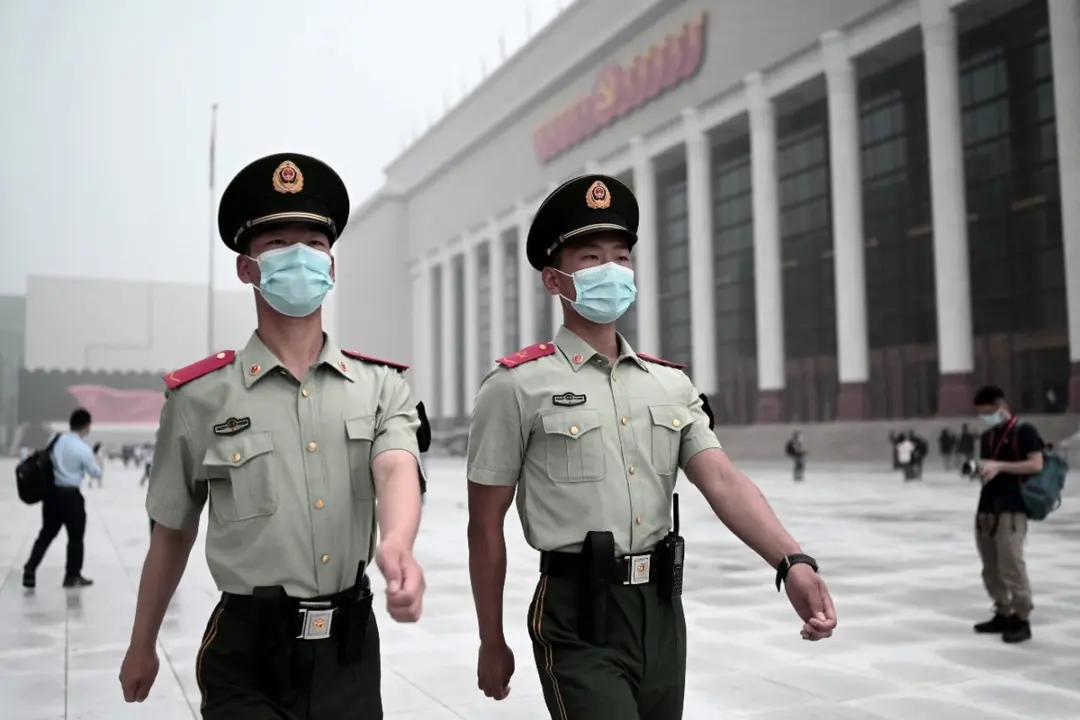Over the years, over 200,000 individuals have also ‘voluntarily’ returned to China due to ‘persuasion’ by Beijing authorities.
One New Zealand MP is calling for her country to establish a dedicated committee to deal with the issue of foreign interference.
The call comes following the latest report from human rights NGO, Safeguard Defenders, detailing the Chinese Communist Party’s (CCP) “policing” operations outside its borders.
The report looks at the first decade of Operation Fox Hunt and Operation Sky Net, two worldwide operations to apprehend overseas Chinese accused of financial crimes.
The methods used include extradition, repatriation, and sometimes kidnapping. The data is sourced from official accounts by the CCP’s Central Commission for Discipline Inspection (CCDI).
It contains 283 individual accounts of extrajudicial returns from at least 56 countries and 2 territories (Hong Kong and Macao). In total, the CCP claims it has successfully returned more than 12,000 people using these methods since 2014.
Amongst them were 16 successful operations in Australia, and 10 in New Zealand, plus another three attempts in Australia which are said to have failed.
Within the Asia-Pacific region, the report also details Beijing’s 22 successful operations in the Philippines, 14 in Cambodia, 13 in Myanmar, 12 in Vietnam, 11 in Laos, 10 in Thailand, seven in Hong Kong, six each in Malaysia and South Korea, four in Singapore, two each in India, Indonesia, Taiwan, and Japan, and one each in Fiji and Macao.Added to these figures are around 230,000 people who have succumbed to “persuasion” to return, a method which—according to Safeguard Defenders—includes “extensive interrogation and repeated visits of and to family members in China; (collective) punishment of relatives in China; or direct threats, surveillance and harassment of the target abroad by (undeclared) PRC agents or their proxies.”
For instance, in 2019 the Guangdong Discipline Inspection Commission’s official website revealed that Yu Shanfu had returned from “a certain country in the South Pacific (New Zealand) to face corruption allegations after a task force confronted his son during a visit to China and threatened to stop him from leaving the country if he did not provide information about his father’s whereabouts.
In one Australian case, that of Chen X, people.cn reported that the “police handling the case found Chen’s parents many times to do ideological work” and talked of undertaking “policy research” to locate him.
It goes on: “A certain ‘faxiao’ team worked together to persuade Chen to return … under pressure, Chen expressed his willingness to surrender to the Cixi Public Security Bureau through a lawyer. Not long ago, Chen returned to Changle, Fujian from Sydney, Australia, and surrendered to the Cixi Public Security Fugitive Team.”
Of the 10 returns from New Zealand, nine were under the “pressure to return” method.
In Australia, the AFP and immigration administration are listed as assisting in one case, while in New Zealand, local law enforcement assisted with two, including that of Yan Yongming.
A CCDI account of his eventual surrender says, “After 32 head-to-head confrontations, the working group finally made Yan Yongming realise that returning to China to surrender and return the stolen money was the most correct choice. During this process, the New Zealand Police always assisted the working group in legal interpretation and other work in accordance with New Zealand laws.”
China does not have an extradition agreement with New Zealand due to concerns about its judicial and prison systems.
But according to the CCDI “the New Zealand police sent personnel to Jilin Province seven times to investigate and collect evidence to learn about Yan Yongming’s suspected crimes.”
South Korean national and New Zealand resident Kyung Yup Kim has spent the last 13 years fighting against extradition from New Zealand to China on a murder charge, with his lawyers currently challenging a fresh surrender order signed by the government.
The Safeguard report has prompted the New Zealand co-chair of the Inter-Parliamentary Alliance on China, Labour MP Ingrid Leary, to call for the establishment of a permanent select committee on foreign interference and protecting democracy.
Ms. Leary said it provided further evidence of New Zealand’s potential vulnerability to foreign interests and influences, following last month’s Beijing-linked cyber attacks.
“No country is immune from foreign interference from state and non-state organisations, and the threats to our democracy require us to be more vigilant and find ways to respond more nimbly,” she said on X.
“Taking a cross-party approach is the best way to take the politics out of it and safeguard our national interests.”
She suggests such a committee could gather evidence publicly or in secret and then make recommendations to other select committees, leaving them to adopt or reject any suggestions through the usual parliamentary process.
Ms. Leary is considering writing to Speaker Gerry Brownlee about the proposal and said other MPs were also discussing the idea.

